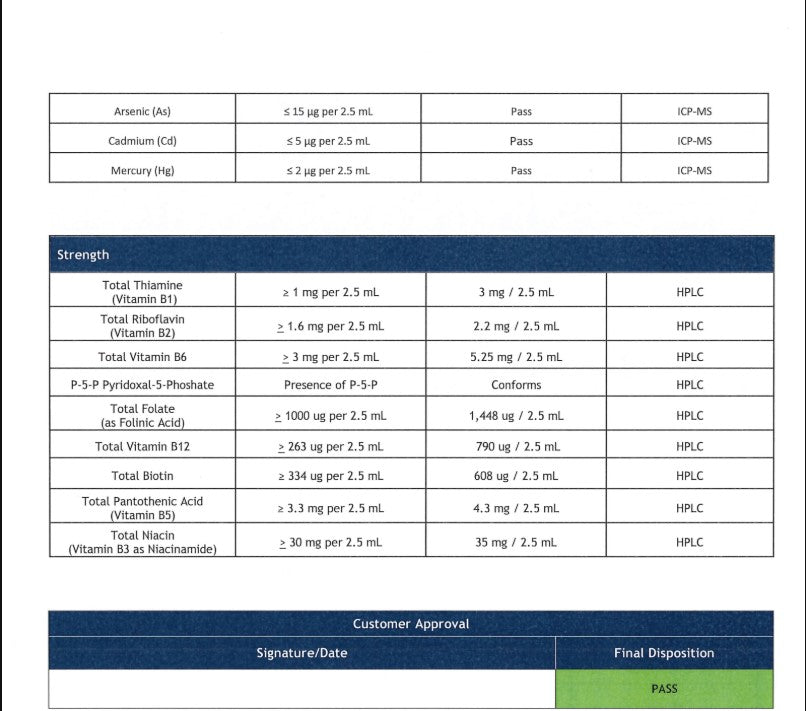Vitamin B1 (Thiamine)
● May support aerobic energy metabolism (oxidative phosphorylation), cell growth, optimal neuronal conduction (nerve impulses), and cardiovascular health (94).
● May support cardiovascular function and aids as a neuroprotective agent in individuals with vitamin B-1 deficiencies (94, 95).
Vitamin B-2 (Riboflavin)
● May support conversion and activation of other B vitamins, red blood cell production and serves as a cofactor for both glucose and fat metabolism (energy production) (92,93).Vitamin B3 (Niacin)
● Major B vitamin that supports cardiovascular health by inhibiting hepatic(liver) triglyceride synthesis, reduced very-low-density lipoprotein (VLDL) secretion, and increasing HDL plasma concentrations (8,9,10,11).
● May reduce conversion of VLDL into LDL proteins and serum lipoprotein concentrations in plasma (blood) (8,9,10,11).
● Vital for regulation of gene expression, cell cycle progression, and DNA repair, and cell death (8,9,10,11).
● May support healthy inflammatory responses via antioxidant and anti-apoptotic (prevention of cell death) properties (8,9,10,11).
● May support cognitive health by reducing the age-related decline of NAD+, increasing quinolinic acid, and reducing neuroinflammation (8,9,10,11).
● Increased niacin-associated NAD+ levels have been shown to support neurotransmission, learning, and memory (8,9,10,11).
● Niacin may reduce the prevalence of neurodegenerative pathologies by supporting mitochondrial dysfunction (8,9,10,11).
Vitamin B-6
● Serves as a cofactor in more than 150 enzymatic reactions associated in blood sugar regulation, immunity, cardiovascular function, neuronal health, metabolic, and digestive health (38, 40).
● May support blood sugar regulation via reduced plasma glucose (blood sugar levels) inhibiting the activity of small-intestinal α-glucosidases (enzymes associated with glucose metabolism) (39).
● May support antioxidant status by counteracting the formation of reactive oxygen species (inflammatory markers) and advanced glycation end-products (38,40).
● May support blood sugar regulation in women with gestational diabetes (40).
● Cofactor for enzymes involved in DNA metabolism (40)
Folate (as 5-Methyltetrahydrofolate)
● May support proper cell growth and DNA synthesis (65).
● May support cognitive function with individuals who have MTHFR gene mutation (381).
Biotin
● May support conversion of food into cellular energy, hair health, skin health, and cognitive function (213,214).
● May enhance glucose breakdown into skeletal muscle tissue (213,214).
Vitamin B5 (Pantothenic Acid)
● May support energy production, cell growth, cell repair, cognitive function, increased hippocampal volume (memory), and optimized bioenergetics (burning of carbohydrates, fat, and protein) (96).















